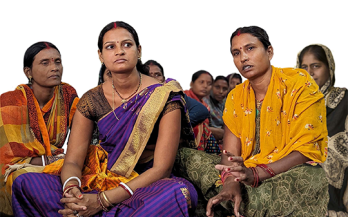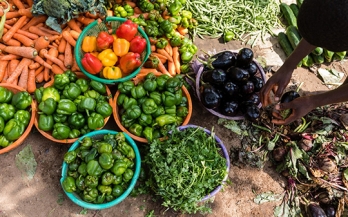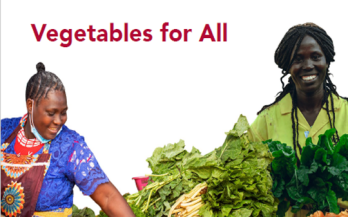ToeffectivelytransformMozambique’snationalfoodsystemsinalignmentwiththeUnited Nations Food Systems Summit pathways, it is crucial to have access to current data and analytics. Mozambique’s Food Systems Dashboard, hosted by SETSAN1 (the National Secretariat for Food and Nutrition Security under the Ministry of Agriculture), plays a pivotal role in this transformation.
Food systems have the potential to drive inclusive growth, prosperity, nutrition, and health, or, if poorly managed, they can deepen inequalities and exacerbate poverty, malnutrition, and other poor outcomes. Data plays a crucial role in building food systems that drive positive development outcomes by providing the foundation for informed decision-making, effective policy formulation, targeted interventions, and stakeholder engagement and collaboration.
Drawing on GAIN’s evidence-based four pillar framework for effective workforce nutrition programmes and prior experience in India's tea sector, a workforce nutrition programme was proposed, designed and implemented for tea estate workers and their families on 12 tea estates throughout the country. The programme was implemented between February 2021 and March 2023 in collaboration with the Ethical Tea Partnership
GAIN saw an opportunity to establish a workforce nutrition programme designed and implemented for both tea farmers and employed labourers of tea farms in four tea factories in Kericho County, Kenya. The programme was implemented between January 2020 and December 2022 in collaboration with the Ethical Tea Partnership, and aimed to reached 26,000 workers.
Poverty and malnutrition are critical challenges in Bihar. Malnutrition is a persistent challenge in Bihar, India – a state that, despite significant progress in recent years, still lag behind the national average in key nutrition indicators. Rates of malnutrition in Bihar are among the highest in the country.
Indonesia is confronting a pressing public health challenge that extends beyond diet: the impact of non- communicable diseases (NCDs) driven by lifestyle factors, including high sodium intake. This issue
is particularly concerning as many NCDs, such
as hypertension and cardiovascular disease, are preventable yet contribute significantly to the country’s morbidity and mortality rates. For instance, Indonesia’s stroke burden remains substantial, with a Disability- Adjusted Life Years (DALYs) rate of 3,809 per 100,000 people in 2021,1 one of the highest in Southeast Asia, reflecting the urgent need for targeted public health interventions.
On August 29, 2024, the Global Alliance for Improved Nutrition (GAIN) hosted the inaugural Enterprise Support Organisation (ESO) for Nutrition Convening in Nigeria, themed ‘Catalysing Nutritional Innovation: Empowering ESOs to Transform Food Systems.’ This first-of-its-kind convening in Africa brought together over 150 participants, including key stakeholders from academia, the private and public sectors, development agencies, and civil society. The convening focused on the critical role ESOs (entities that provide business development services to businesses) play in transforming food systems by supporting agri-food small and medium-sized enterprises (SMEs) to overcome operational challenges, enhance capacity, and improve nutrition outcomes for underserved populations.
This convening paper summarises the contents and outcomes of a meeting series jointly organised by the Deutsche Gesellschaft für Internationale Zusammenarbeit (GIZ) and the Global Alliance for Improved Nutrition (GAIN). The initiative aimed to foster exchange between policy advisors from both organisations who provide policy advice to governments on topics related to food systems transformation and governance.
Approximately 11 million Nigerian children, or one-third of the population, experience severe child food poverty, significantly increasing their risk of malnutrition, including a 50% higher likelihood of wasting (UNICEF, 2024).
This mirrors a wider global issue, with 66 million children in low- and middle-income countries, including 23 million in Africa, attending school hungry every day (Bekri et al., 2023). Addressing this urgent crisis requires social protection interventions that combat child hunger and improve nutrition outcomes, such as school feeding programmes.
Vegetables for All is a Dutch Government-funded five-year project aimed at improving dietary diversity for 1.1 million urban and peri-urban Bottom of the Pyramid (BoP) consumers by increasing vegetable consumption in alignment with global guidelines. The project is being implemented across five counties: Nairobi, Kiambu, Machakos, Nakuru, and Mombasa, and it specifically targets families with children aged 3-12 in the lower-income group, Living Standard Measure (LSM) 3-7, who earn between USD 1.9 and 3.2 per day.










